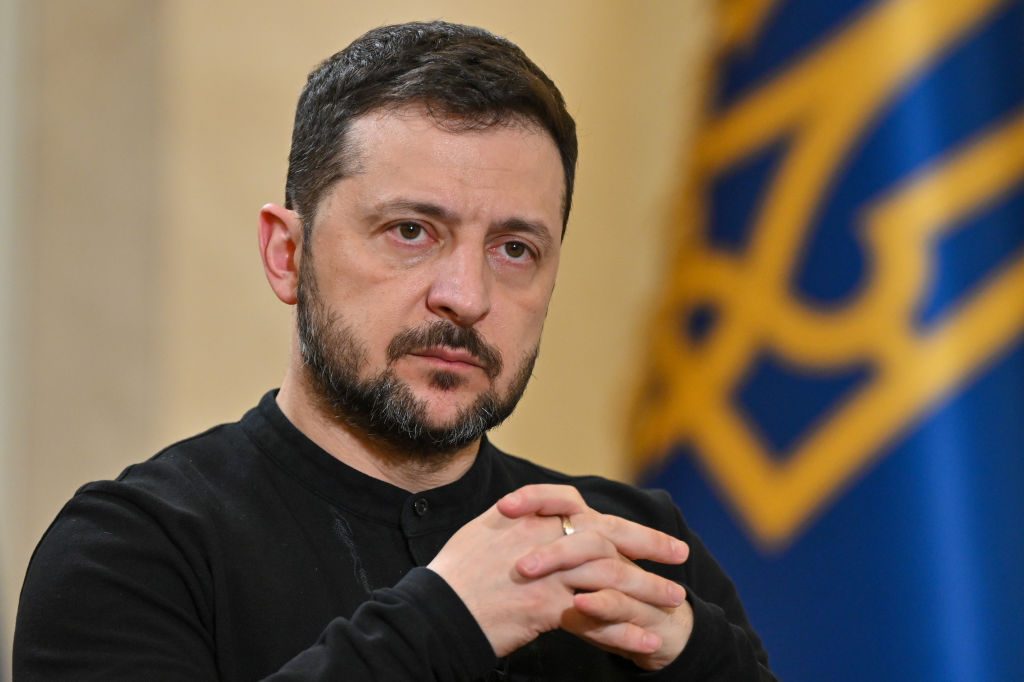For the first time since Russia’s 2022 invasion, large-scale protests filled Kyiv’s streets this week. The immediate cause was President Volodymyr Zelensky’s decision to sign a new law which guts the independence of the country’s anti-corruption bodies, placing them under the oversight of his hand-picked appointee. This has not come out of the blue. Instead, it appears to be part of a larger effort to consolidate his own power, and follows a major bureaucratic shake-up which merged several ministries and shuffled his top advisors.
Though Zelensky has argued that the changes will increase the government’s efficiency and help Ukraine better sustain its war, the reality is likely to be quite different. Instead, the swipe at anti-corruption groups risks eroding Kyiv’s foreign support by reminding observers that Ukraine was never the model democracy imagined by Washington and Brussels. Zelensky’s political moves may also accelerate domestic dissatisfaction with his management of the country’s seemingly interminable conflict with Russia.
But even as the President’s authoritarian turn creates new pressures for an end to the fighting, it will also complicate his attempts to broker a favourable settlement, placing key demands such as EU membership far out of his grasp.
When explaining why it was so important for the United States and Europe to support Kyiv in its fight against Russia, the Biden administration emphasised the image of Ukraine as a brave democracy under threat from an authoritarian neighbour. Russian President Vladimir Putin “want[s] to completely annihilate a neighbouring democracy,” Joe Biden told the American public in 2023 as he tried to rally support for delivering further aid to the struggling US partner.
This image does not hold up to scrutiny. In 2022, Freedom House — a non-governmental organisation which assesses the strength of the world’s democracies — rated Ukraine as just “partly free” and a “transitional democracy”. By 2024, the country had slipped even further from the top scores, becoming less democratic since the beginning of the conflict. Zelensky’s latest decision is simply a reminder that the “Ukraine as democracy” narrative was always a myth. Some of Kyiv’s foreign backers may remain steadfast in the face of this reality check, but others may be repelled by the country’s political direction.
Disillusionment is also likely among domestic voters, many of whom voted for Zelensky because of his 2019 anti-corruption platform. More than three years of fighting have eroded much of the support that he received in the early days of the war. Ukrainians are looking for an end to the conflict, especially considering that Russia has stepped up air attacks in recent months. Even those who treasure Ukraine’s sovereignty may be unwilling to continue fighting for a leader and a government that deliver neither battlefield success nor personal safety, while stripping away civil and political liberties. As Ukrainian intelligence chief Kyrylo Budanov wrote on Telegram this week, “a nation loses when it is torn apart by internal conflicts.”
The bad news for Zelensky does not stop there. Even as domestic and international support for Kyiv’s military campaign wanes, his recent political moves may also weaken his negotiating position and make any future attempt at peacemaking more difficult. In trying to tighten his grip on political power, he has compromised his legitimacy as the representative of the Ukrainian populace, deputised to negotiate a settlement on their behalf. Moscow may now be hesitant to work with Zelensky at all, uncertain that any deal reached with an unpopular Ukrainian leader will be honoured by his successor.
At the same time, Zelensky’s push to increase his own executive control is antithetical to the changes Ukraine requires to be considered seriously for European Union membership — a longtime post-war goal. A future peace deal that leaves the country outside Nato — already off the table according to the Trump administration — and with no viable pathway to full EU membership is a real possibility.
Being a wartime leader is hard. It demands managing internal political pressures while battling external adversaries and holding together a coalition of international supporters. Zelensky will need to be cautious going forward, lest his efforts to succeed at the first task derail the rest of his balancing act.











Join the discussion
Join like minded readers that support our journalism by becoming a paid subscriber
To join the discussion in the comments, become a paid subscriber.
Join like minded readers that support our journalism, read unlimited articles and enjoy other subscriber-only benefits.
Subscribe